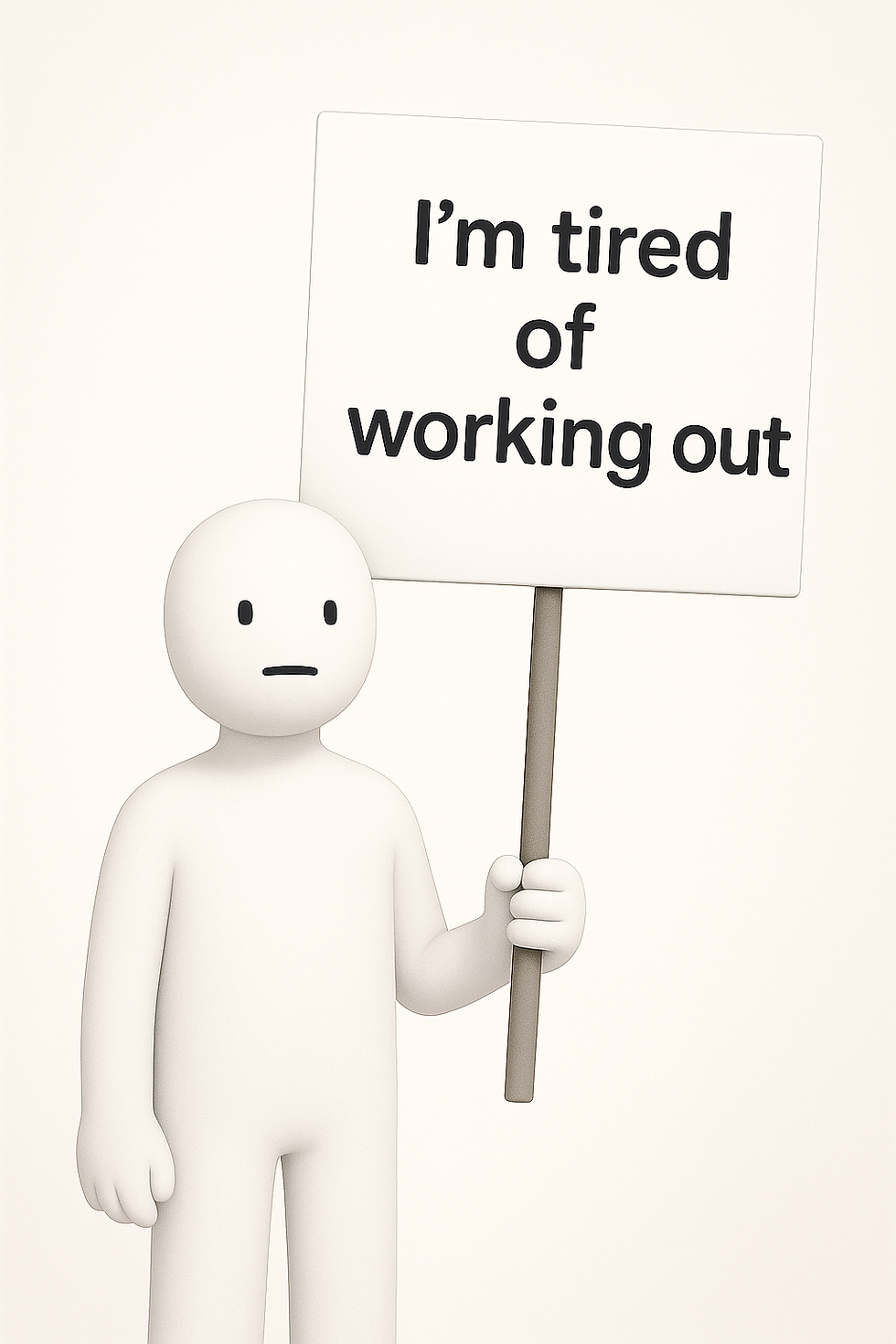Less Is More: How the Right Exercise Dose Beats Overdoing It
- OliFit

- Jun 12
- 3 min read
The Right Dose vs. Too Much Exercise
Think of exercise like medicine: there's an optimal "dose" that gives the best effect. Doing double or triple won't necessarily double the benefit – and it might even backfire. Research shows there's a sweet spot.
When Exercise Backfires
Our bodies need time to recover and get stronger. Cramming in too many workouts with too little rest can actually stall progress. Overtraining is a real thing – it's essentially your body saying "I've had enough!" If you've ever felt wiped out, sore all the time, or noticed your performance getting worse instead of better, you might be overdoing it. In extreme cases, excessive exercise without adequate rest can cause wide-ranging problems: it throws off your hormones, taxes your nervous system and immune system, and messes with your mood pmc.ncbi.nlm.nih.gov. Pushing too hard for too long can leave you exhausted and even weaken your immune defences – think constant fatigue, irritability, trouble sleeping, and catching colds more often medlineplus.gov.
Big Benefits from Smarter Training
The good news is that you don’t need endless hours in the gym to get great results – especially when strength training. It’s about training smarter, not just harder. One study of experienced weightlifters found that just three short sessions a week (about 13 minutes per session) were enough to significantly boost strength and endurance – similar gains to what another group got with five times more gym time pmc.ncbi.nlm.nih.gov. In other words, a focused 40-minute workout routine (spread over the week) can make you just as strong as grinding away for hours — though for maximum muscle size, higher volume may still help.
When it comes to long-term health, strength training also seems to follow the "sweet spot" principle. Research on older adults suggests that performing a moderate amount of resistance training — around one to two hours per week — is associated with about a 30% lower risk of early death compared to doing none. Interestingly, doing much more than this (over roughly 2.5 hours per week) didn’t appear to provide additional longevity benefits, with some evidence suggesting a possible plateau — and that extremely high volumes may not be necessary or helpful for overall health. In other words, a couple of well-planned strength sessions each week can deliver most of the health benefits, without the need for marathon training sessions.
Key Takeaways
Quality beats quantity: Consistent, well-planned workouts outperform sheer volume in most cases again, this depends on your individual goals.
Avoid the burnout zone: Overtraining can compromise your progress and health – watch for signs like persistent fatigue, poor sleep, dropping performance, or frequent injuries/illnessmedlineplus.gov. Your body needs recovery to grow stronger.
Shorter workouts can work wonders: You can gain plenty of strength and fitness with relatively short, focused training sessions. Studies show even brief weight workouts can produce big improvementspmc.ncbi.nlm.nih.gov.
Find your sweet spot: Aim for a balanced routine – Science suggests you get most of the health perks from moderate exercise, while avoiding the pitfalls of doing too much observatoireprevention.orgpmc.ncbi.nlm.nih.gov.
Remember, the goal is long-term fitness and wellness. It's encouraging to know that you don't have to punish yourself daily to get results – in fact, your body will thank you for the right mix of work and rest. So let's train smart: challenge yourself, yes, but also give yourself permission to recover. Your muscles (and your motivation) will be happier for it!





Comments